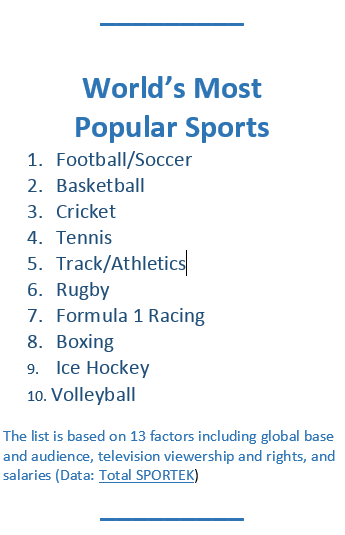Sports Illustrated: Tennis and Globalization
Tennis, while not the world’s most popular sport, has gained in global popularity largely because organizers and players have relied on globalization and technology to pursue top talent and expand interest. “Scan the top 25 players in the ATP rankings and, save Antarctica, you'll find representatives from every continent,” explain Jon Wertheim and Aryeh B. Bourkoff for Sports Illustrated. “As presidents, prime ministers, chancellors and CEOs around the globe confront a towering challenge of our time – how do you transition safely, let alone thrive, in a global economy – tennis provides a source of guidance and optimism. In fact, you'd be hard-pressed to find a sector that's made a more successful transformation from parochial to panglobal.” Sports programs with a few dominant players from limited countries, resisting new participants or audiences, offer few surprises and become boring. The writers warn about “isolationist and nativist proposals, such as dividing the circuit into ‘regional tours,’” a plan that failed in tennis. Top players think globally, too, and the article describes how Serena Williams hired a French coach to learn about her competition. Talented tennis players do not hesitate to speak out on social causes. The authors conclude that tennis is a model for free trade, open societies, best labor practices and meritocracy. Sports that go global improve competition and maintain relevance. – YaleGlobal
Sports Illustrated: Tennis and Globalization
Managers seek top talent and big audiences In business, education and sports, resisting boundaries and taking advantage of what globalization can offer
Tuesday, November 14, 2017
Aryeh B. Bourkoff is the founder and CEO of LionTree LLC, a global investment and merchant bank, focused on media, technology and telecommunications.

Sports Illustrated
Copyright © 2017 Time Inc. Sports Illustrated Group. All Rights Reserved.